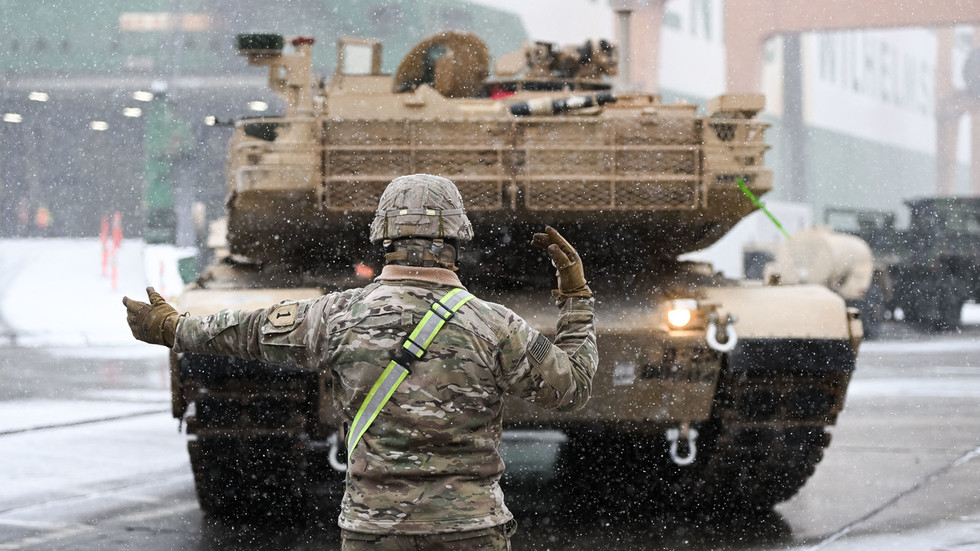
The White House reportedly agreed to deliver the Abrams to Ukraine to shield the German chancellor

A US Army M1A2 Abrams tank arrives for an exercise in Gdynia, Poland, December 2022. © Mateusz Slodkowski / AFP
The US devised a plan to commit M1 Abrams tanks to Ukraine in order to provide “cover” for German Chancellor Olaf Scholz, who was reluctant to send the country’s own tanks to help Kiev, the Washington Post reported on Saturday, citing more than a dozen people familiar with the matter.
Relying on sources “on both sides of the Atlantic,” the report details how the White House struggled to win over Scholz who initially resisted delivering the Leopard 2 tanks to fight Russian forces in Ukraine unless the US agreed to commit the Abrams. Defense Secretary Lloyd Austin and the Pentagon reportedly were against sending American main battle tanks that they believed would be too difficult for Ukrainians to operate and maintain.
According to the Post, it was Secretary of State Antony Blinken who proposed announcing a commitment to supply the tanks to Kiev, but at some point in the future, as part of “‘long term’ needs in a war that might go on for years.”
It could provide Scholz with the cover he sought to allow the Leopards to move right away. At the same time, it would give the Pentagon…time to address concerns about training Ukrainian forces on how to use them and setting up the necessary logistics.
Germany said on Wednesday it would provide 14 tanks directly from its army stocks. Scholz announced later that Berlin and other European countries would together send 112 Leopards to fight in Ukraine.
READ MORE: Pentagon lobbied for F-16s to Ukraine – Politico
Meanwhile, the 31 US Abrams tanks slated for Kiev need to be assembled first. According to Politico, since Washington is procuring the tanks from the manufacturer, it could take “many months, or potentially years” for them to roll onto the battlefield.
Russia has maintained that foreign weapons, including heavy tanks such as the Abrams, will not change the course of the conflict. “As we said in the past, these tanks will burn just like the rest. They just cost a lot [to make],” Kremlin spokesman Dmitry Peskov said on Wednesday.




